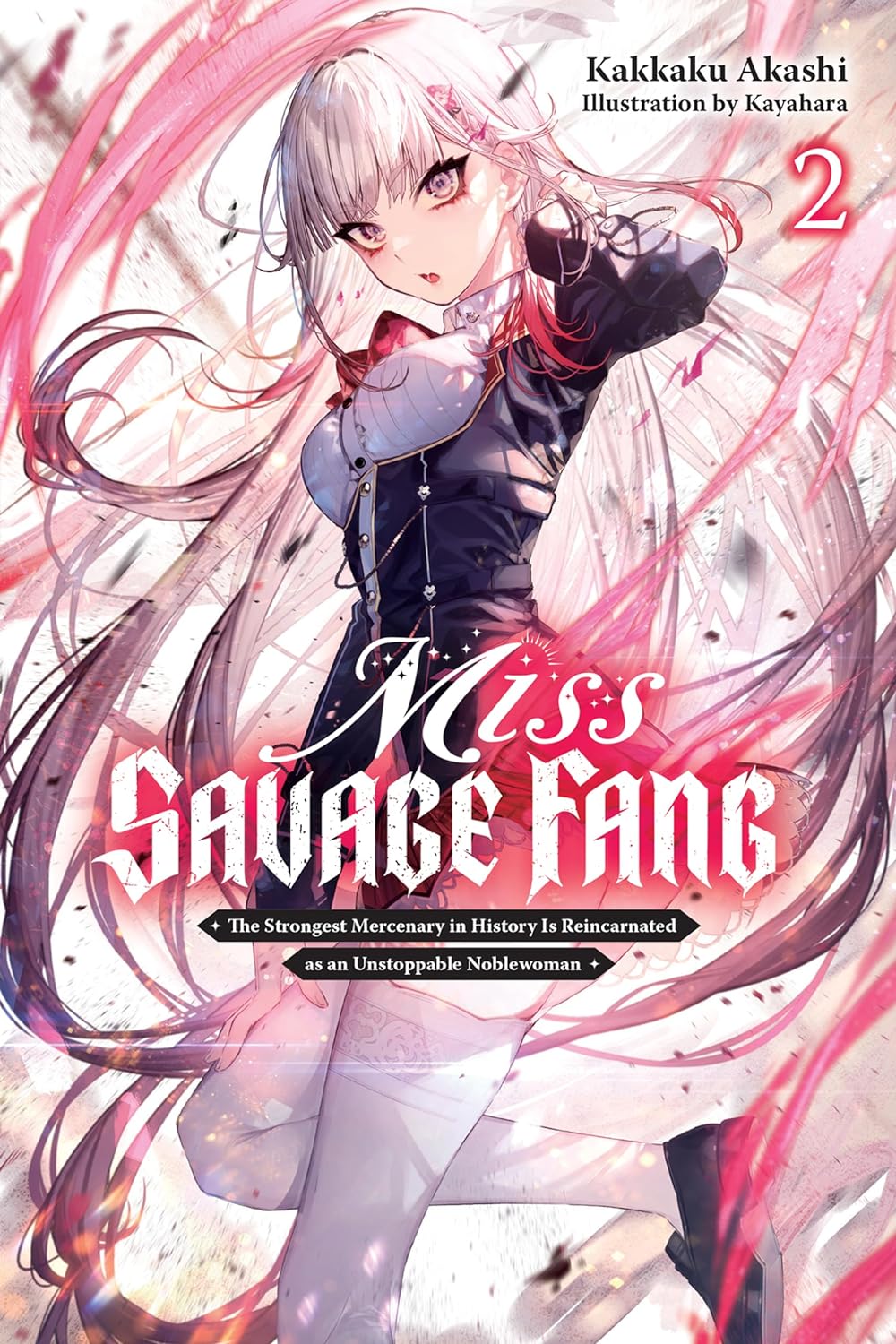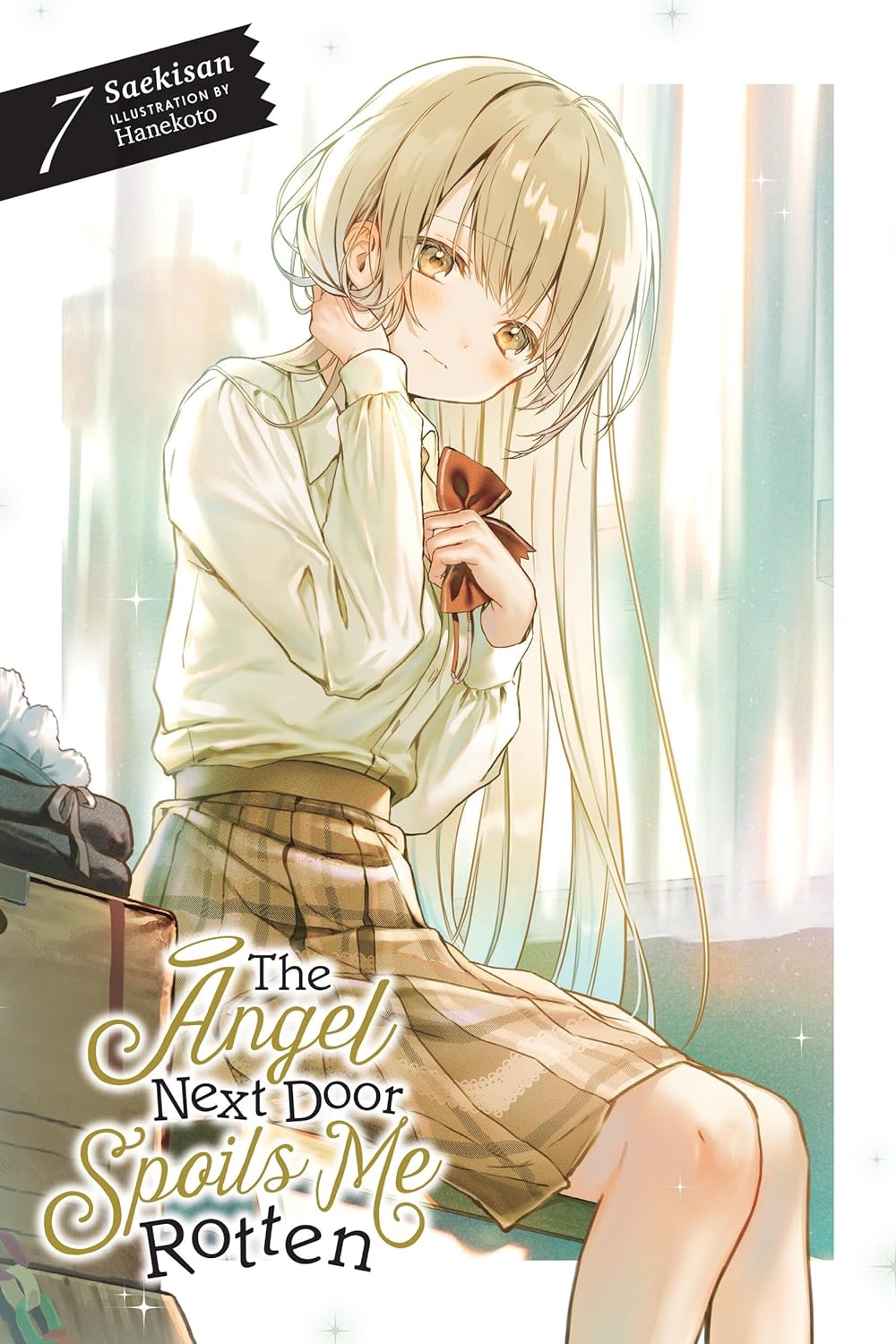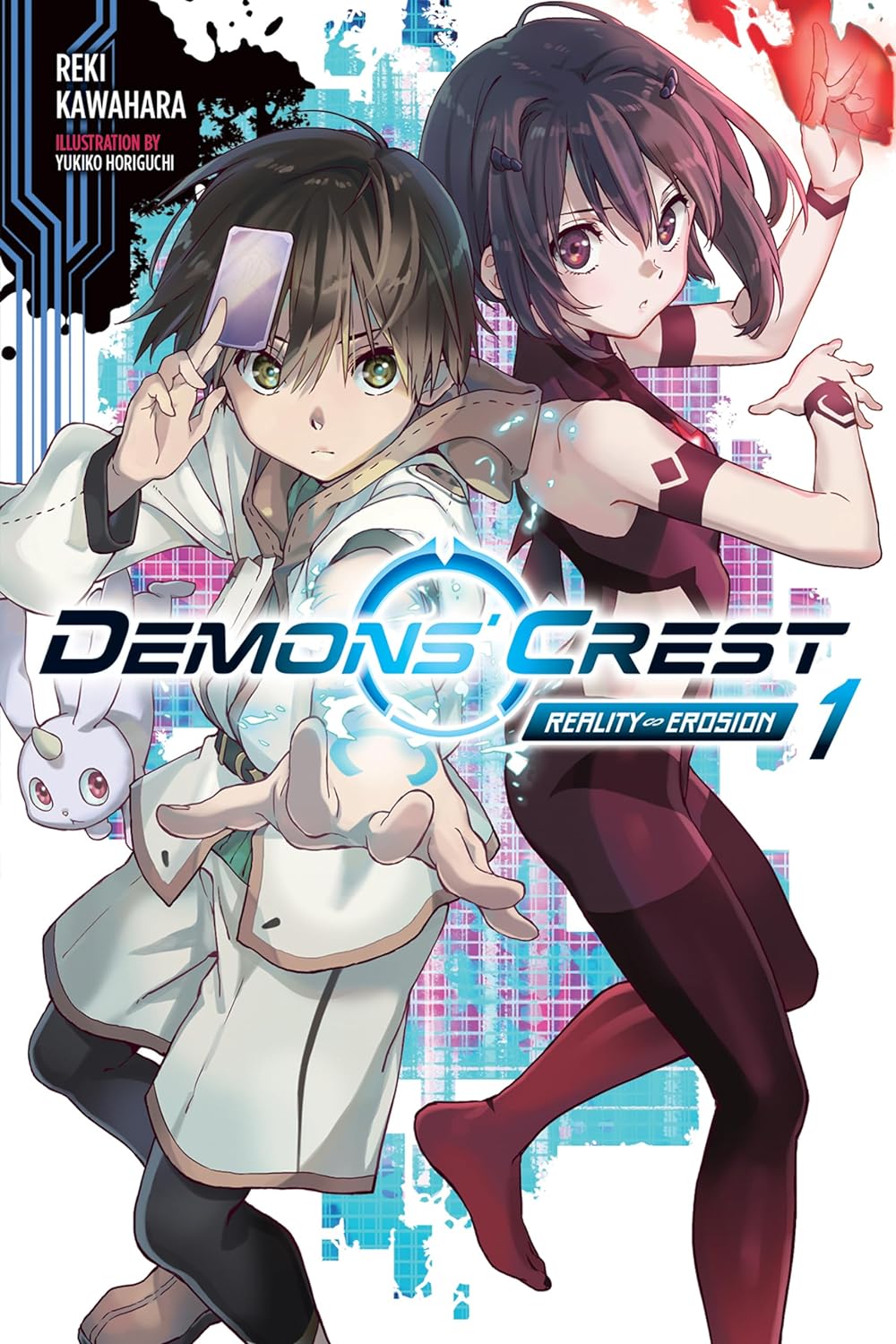By Kakkaku Akashi and Kayahara. Released in Japan as “Savage Fang Ojō-sama: Shijō Saikyō no Yōhei wa Shijō Saikyō no Bōgyaku Reijō to natte Futatabime no Sekai o Musō Suru” by Fujimi Fantasia Bunko. Released in North America by Yen On. Translated by Sarah Moon.
First of all, some good news: while she is still fairly worshipful towards Mylene, the character of Colette is allowed to keep a lot of her kickass attitude from the first book. In particular, while I would not call this a yuri book per se, it is very clear that a) Mylene, being a male mercenary reincarnated, is not interested in men, and b) Colette is incredibly thirsty for Mylene and will absolutely try to seduce her whenever she gets a chance, held in check only by Mylene’s grumpy attitude and realization that it would upend a lot of things Mylene does not want upended. Basically, Mylene is looking to get through the next few years without what happened in the previous world happening again. Unfortunately, that religious cult is still around, they do not like Mylene at all now that she’s not their evil queen bitch, and they are ready to assassinate her.
Sure, this may take place in a world with magic, gods, and apocalyptic prophecies, but we are still in a high school of sorts, adn that means that there’s going to be a culture festival. Or the equivalent in this universe, which basically has the students compete to see if they can be good businessmen and women. Mylene realizes that selling upscale goods that nobles can get anywhere is not going to cut it, and suggests what amounts to a maid cafe… and is somewhat horrified to find that this means she will have to wear a maid outfit as well. There’s also a student, Melissa, who is hanging around, glaring at Mylene, and then running away. She’s essentially the “heroine” of this universe, a priestess who led the charge against Mylene in the old world and died a martyr. Here Melissa is more concerned by Mylene’s current personality, which is nothing like her old one.
This had a big “difficult second album” feel to it, as I got the sense that the author had written it as a one-shot and wasn’t sure where to go from here. The fact that we haven’t had a 3rd volume in Japan in the last two years does not really help that feeling. Still, the volume’s not bad. Colette is just plain hilarious, especially when she’s trying to politely say “take me now” and getting into fierce rivalry with Prince Albert. (She also gets the blatant fanservice in the book’s color pages.) The assassin himself is also interesting, mostly as he’s not a devoted cultist like the last bad guy, but a serial killer who just delights in killing off “interesting people” for the sake of the drama. Literally – he was a playwright. The final fight between him and Mylene is excellent, though I was annoyed that Melissa is basically just there to be a plot device. Oh well, I’m sure she’ll integrate better in the next volume.
If there is one. Till then, this is decent enough villainess fare, for those who like one who swears a lot.



